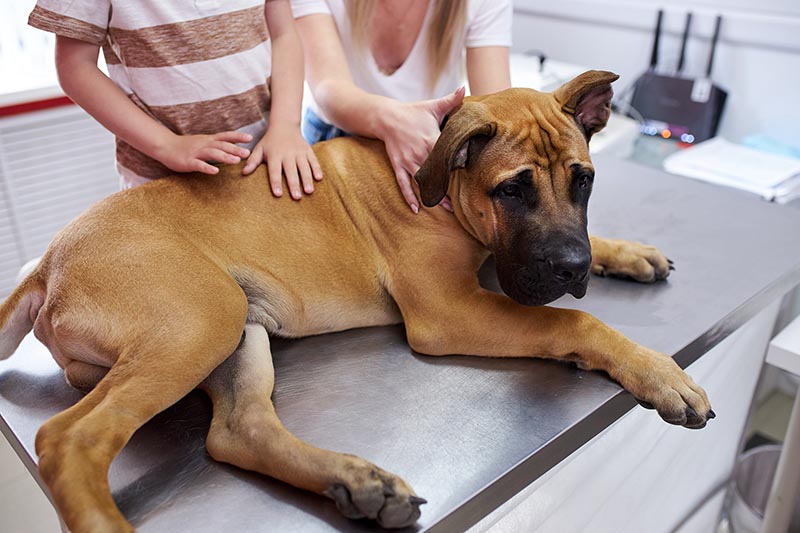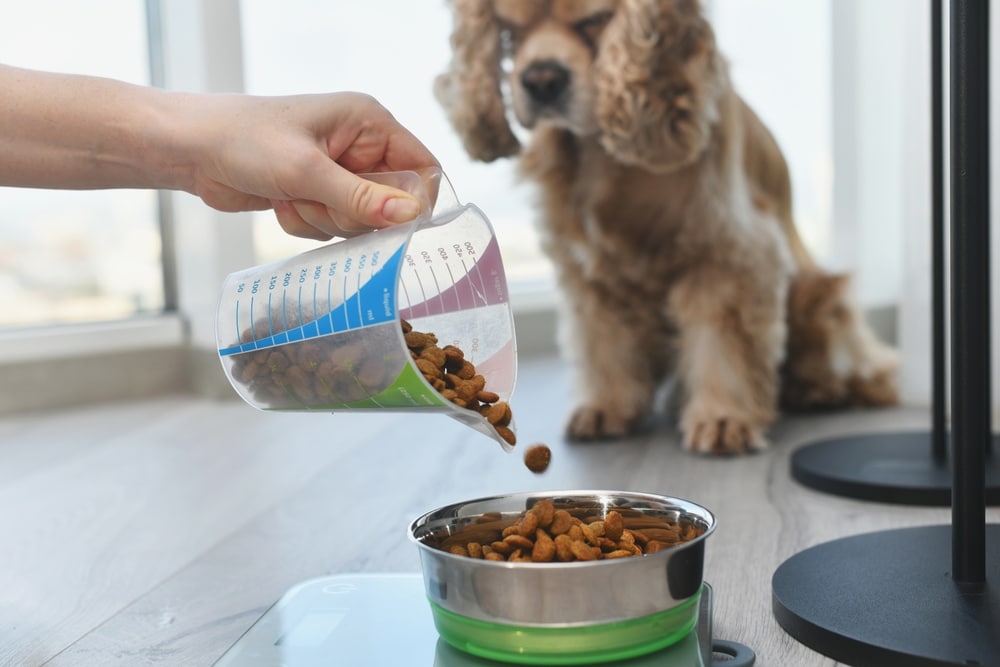
Click to Skip Ahead
As dog owners, we often share the joys of life with our furry friends. One such joy is savoring a delicious ice cream cone on a sunny day. But can dogs indulge in this sweet treat as we do? The answer is more complex than it appears. While dogs technically can eat ice cream cones as long as they don’t contain chocolate or xylitol, they really shouldn’t as ice cream cones aren’t healthy for dogs. Let’s dive into this doggie dietary question.
What Is an Ice Cream Cone?
An ice cream cone is a crispy, edible holder for ice cream, typically crafted from ingredients like flour, sugar, and eggs. They come in various forms, including waffle cones, sugar cones, and cake cones. While they’re delightful for humans, are they equally safe for our canine companions?
Can Dogs Eat Ice Cream Cones?
Technically, dogs can eat ice cream cones. However, it’s not recommended. Here’s why:
Choking Hazard
One potential concern is the potential choking hazard that ice cream cones pose. Dogs, unlike humans, don’t always chew their food thoroughly. A piece of the cone could get lodged in their throat, leading to choking.
High Sugar Content

Ice cream cones are generally high in sugar, which isn’t ideal for dogs. Excessive sugar intake can lead to obesity in dogs, just like in humans. Obesity can lead to other health problems over time, including diabetes and joint issues.
Xylitol
Many ice cream cones and ice creams are made using artificial sweeteners, one of which is xylitol. This substance is incredibly toxic to dogs and can cause severe side effects such as hypoglycemia, liver failure, and even death.
Dangerous Ingredients
Ice cream cones may also contain other ingredients that could be dangerous for your pup. Many of the store-bought kinds can be made with chocolate or nuts, which can cause adverse reactions in dogs.
Signs Your Dog Is Not Feeling Well

After your dog has eaten an ice cream cone, you’ll want to monitor their behavior and physical condition. Dogs can’t tell us when they’re feeling unwell, so we need to be vigilant about spotting signs of distress.
If your dog shows any of the above signs after eating an ice cream cone, it’s best to contact your veterinarian for advice.
Can Dogs Eat Ice Cream?

While we’re discussing this, it’s worth noting that the ice cream itself also poses risks to dogs. Traditional ice cream, made for human consumption, is not suitable for dogs to eat in high amounts. Even seemingly harmless flavors like vanilla or strawberry should only be given in very small amounts.
Lactose intolerance is prevalent in dogs, so ice cream, which is dairy-based, can cause digestive issues like diarrhea and vomiting. Also, similar to ice cream cones, many ice creams contain high levels of sugar and potentially harmful sweeteners like xylitol.
What About the Occasional Pup Cup?
In recent years, several ice cream shops have started offering “Pup Cups,” small servings of dog-friendly vanilla ice cream or whipped cream usually served in a small cup. These are generally safer options than traditional ice cream or ice cream cones, as they aren’t harmful to dogs as long as your dog isn’t lactose intolerant. However, they should still be offered sparingly as a special treat, not a regular part of your dog’s diet.
Tips for a Healthy Diet

While dogs can technically eat ice cream cones, the potential risks far outweigh any brief enjoyment your dog might get from the treat. It’s best to stick to dog-friendly treats and avoid sharing your sweet indulgences with your furry friend.
When choosing treats for your dog, always check the ingredient list. Avoid items with a high sugar content, artificial sweeteners (especially xylitol), chocolate, grapes, onions, garlic, and anything else known to be toxic to dogs. If you have any questions on safe foods for your dog to consume, consult your vet.
A balanced diet is the foundation of your dog’s health and happiness. High-quality dog food that meets all their nutritional needs should form the basis of their meals. However, there are additional considerations to ensure your dog’s diet supports their overall wellbeing:
Conclusion
To wrap things up, while dogs can technically eat ice cream cones, they shouldn’t. As responsible pet parents, we must prioritize our pets’ health above all else. So next time you’re enjoying an ice cream cone, remember to keep it out of reach of your furry friend and offer them a more dog-friendly option, like commercial dog treats instead!
Featured Image Credit: virtu studio, Shutterstock









